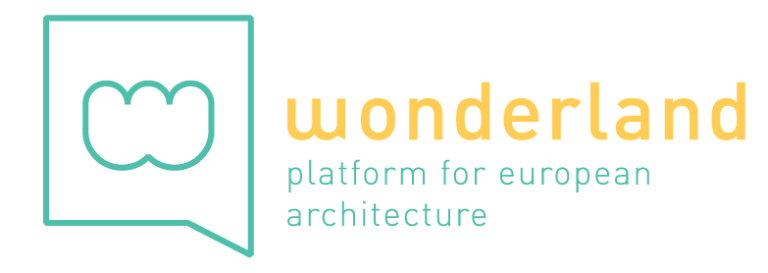Wonderland‘s SUPERWIEN team and Movies in Wonderland curated an hybrid symposium in a Movies in Wonderland Dialogue #3 with 3 main topics and are connecting ambitions of Viennese and international experts to the database of New European Bauhaus.
The symposium invites experts to show and discuss examples of good practices in the areas of:
- heat city
- food city
- arivval city.
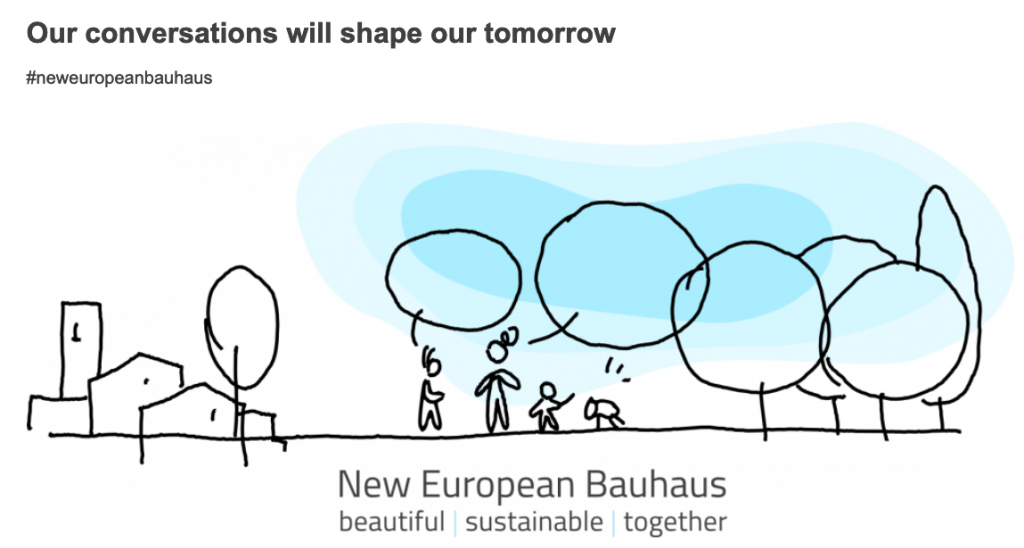
Friday, June 25, 2021
Friday, June 25, 2021, 10:00 – 12:00 h superwien talk #1: Heat City
Friday, June 25, 2021, 13:00 – 14:30 h, superwien walk #1: Decoding Heat Islands: Neues Landgut
Friday, June 25, 2021
Friday, June 25, 2021, 16:00 – 18:00 h superwien talks #2: Food City
Friday, June 25, 2021, 22:00 h: Movies in Wonderland #1 – “Seven Sisters Indoor Market” by Marios Kleftakis & Klearjos Eduardo Papanicolaou
Saturday, June 26, 2021
Saturday, June 26, 2021, 10:00 – 12:00 h, superwien walk #2: Urban Recycling & Art @ Ankerbrot Fabrik,
Saturday, June 26, 2021
Saturday, June 26, 2021, 18:00 – 20:00 h superwien talks #3:Arrival City
Saturday, June 26, 2021, 22:00 h: Movies in Wonderland – #2 – “Welcome to Harmondsworth”, UK, 2019, 15 min, by Felix Bazalgette & Toby Bull
“FLOTEL EUROPA”, RS & DK, 2015, 70 min, by Vladimir Tomic
“60 Elephants. Episodes of a Theory“, AT & FR, 2018, 22 min, by Michael Klein & Sasha Pirker
For the guests who join us online:
https://us02web.zoom.us/j/85306966337?pwd=NzhzNXZqcTBrczE3V2xoUkc4S3JOQT09
Meeting ID: 853 0696 6337
Passcode: 689034
follow on facebook:
“Seven Sisters Indoor Market” by Marios Kleftakis & Klearjos Eduardo Papanicolaou
At its heart, this is a film about risk. It is about what we stand to lose in the course of a colossal social transformation reflected in the way our cities are being re-designed. A stroll in central London will show you what this transformation entails. Developers and politicians are building a new skyline, and with it, bearing a new standard of living costs. While recognising that things don’t stand still, this film asks: what do we risk losing as this transformation unfolds? (from the Director´s statement)
In the framework of the Vienna Biennale for Change Roland Krebs and Stefan Mayr from superwien in partnership with the „studio mobil / think tank station“ curated by Hubert Klumpner and Michael Walczak from urbanthinktank_next explore the values of the integrated planning approach in the context of metropolitan development with specific local actions. Through internationally accompanied discussion rounds, urban walks and movie nights, the emerging topics of Heat-, Food- and Arrival-City and their context in urban development are being explored.
Each session will cover a different thematic focus, providing a broad range of insights from distinguished panelists on how to contribute to a beautiful, sustainable and inclusive place-development on different scales by connecting, exchanging and learning with and from each other. These are the values of the New European Bauhaus that we would like to contextualize what it means for urban planning and design of our cities.
Each of the three talks will be hosted on site at Viktor Adler Markt, forming a hybrid on-/offline-event by connecting international guests online. With different inputs and statements our guests will deliver their specific views and experiences, which will continue into an open discussion. Two walks to innovative urban development sites that use heritage buildings in combination of social housing projects conclude these activities.
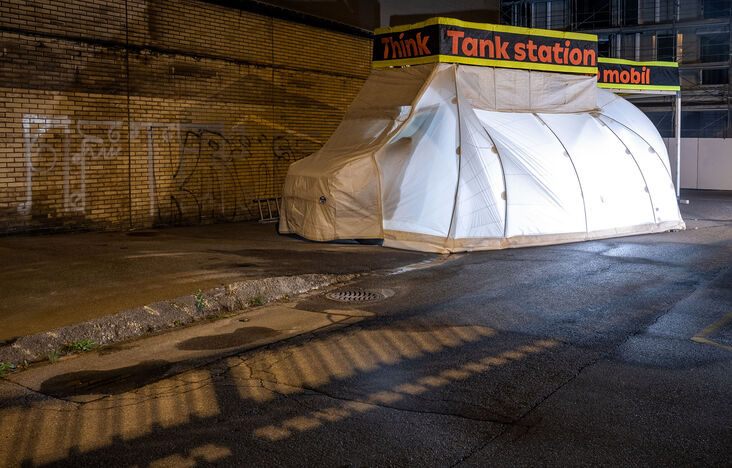
Heat city
Climate change poses many challenges to our planet, and the effects cannot just be examined in the world’s oceans but rising temperature levels are heating up our cities. Heat waves, heavy rains, and dry periods are increasing, and policies must be adapted to these changing conditions. In the urban context, this is tightly intertwined with public space issues such as the extent of greeneries in dense urban environment and its effects on the microclimate. We will discuss this challenge for international examples such as Dhaka and Maputo and look at local Viennese initiatives that strive to analyze the impact of different materials and vegetations on the formation of heat islands and counteract with innovative solutions.
Guiding Questions:
- What are the main issues we are facing in the context of climate change and its influence on cities and how can we ensure an integrated approach when analyzing them?
- What are short- and long-term solutions to problems such as heat islands, and which synergies can we make use of in their application?
Friday, June 25, 2021
Friday, June 25, 2021, 10:00 – 12:00 h superwien talk #1: Heat City
Invited guests:
- Melissa Cavanna, Huasipichanga, Cuenca, Ecuador / Rotterdam, The Netherlands
- Hans-Martin Neumann, Austrian Institute of Technology, Vienna, Austria
- Linda Schneider, MA25/WieNeu+, City of Vienna, Austria
- Katharina Höftberger, superwien urbanism, Vienna, Austria
- Ar. Sheikh Md. Rezwan, superwien urbanism, Dhaka
- Michael Walczak, uttnext, Zurich/Sarajevo
- Gordana Memišević, University of Sarajevo, Sarajevo
- Ute Schneider, Prof., TU Wien / KCAP, Vienna/ Zurich
- Florian Kraus, Greenpass, Vienna
- Gerald Hofer, Grünstattgrau, Vienna
Moderators: Roland Krebs & Anna Aigner, superwien urbanism
Friday, June 25, 2021, 13:00 – 14:30 h, superwien walk #1: Decoding Heat Islands: Neues Landgut
Input:
- Roland Krebs & Stefan Mayr, superwien urbanism, Vienna
- Florian Kraus, Greenpass, Vienna
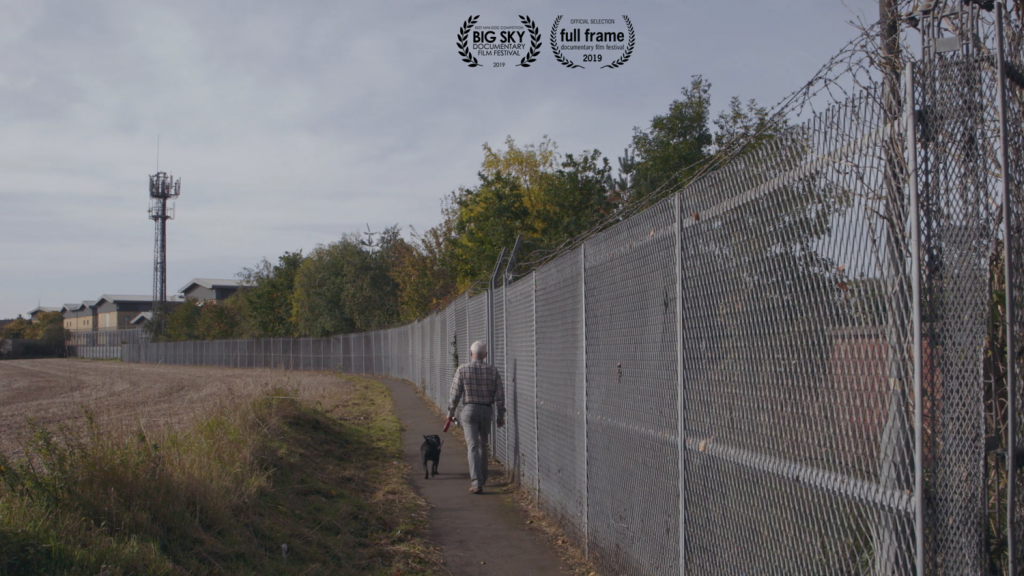
Filmstill “Welcome to Harmondsworth” (c) Toby Bull, Felix Bazalgette
A group of retirees on a bus tour careen toward a pub in the quaint village of Harmondsworth for a coffee. Their tour guide cheerfully shares the history of this rural village outside London while priming the group on the local effort to stop the expansion of Heathrow airport that would destroy homes in Harmondsworth. And yet audio from a self-labeled outsider confirms that an alternative, unseen story simultaneously exists here. In a place wedded to its tourism, even the idyllic surroundings cannot erase what looms at the village’s edge. (Kate Rogers, Full Frame)
Food City
We are experiencing the effects of climate change not only in the way of rising temperatures and extreme weather conditions, but also in the context of our diet, where we are facing new challenges and changing conditions. We live on the basis of a global, unsustainable food system that has a negative impact on our planet with mass production and long transportation distances. Today, we receive food as if by granted and at any time, but what is the concept and systems behind it? From an architectural and urban planning perspective, urban food systems need to be rethought and new ways of feeding the city need to be found. The Talk Food-City will discuss how food shapes our environment and together with international and Viennese guests, address topics such as urban food production, markets and alternative recycling approaches to avoid food waste.
Guiding Questions:
- How is it possible to bring this topic to the mass population? Programs, projects, strategies…? Land issue, land consumption …
- In what way do markets contribute to the supply of the population today?
Friday, June 25, 2021, 16:00 – 18:00 h superwien talks #2: Food City
Invited guests (tbc):
- Vanessa Braun & Daniel Löschenbrand, Food Atlas Wien, Austria
- Daniela Patti, Eutropian, Soil4Food, Urban Innovative Action, Italy
- Andreas Gugumuck, Zukunftshof, Vienna, Austria
- David Weber, Herd Open Kitchen, Vienna, Austria
- Marios Kleftakis & Clearhos Papanicolaou, filmmaker of “Sisters Indoor Market”, Greece / Mexico
- Alejandro Restrepo-Montoya, uttnext, Medellin
- Philipp Loidolt-Shen, Azolla Investigative Design Lab, Vienna, Austria
- Hubert Klumpner, Prof., uttnext, Zurich
- Adnan Pasic, Prof., University of Sarajevo, Sarajevo
- Haris Piplas, Drees & Sommer, Zurich
Moderators: Stefan Mayr & Lisa Kongas, superwien urbanism
Friday, June 25, 2021, 22:00 h: Movies in Wonderland #2 – “Sisters Indoor Market” by Marios Kleftakis & Klearjos Eduardo Papanicolaou
“FLOTEL EUROPA”, RS & DK, 2015, 70 min, by Vladimir Tomic
In 1992 a wave of refugees from the war in Bosnia and Herzegovina reached Denmark. With existing refugee camps completely full, the Red Cross pulled a giant ship into the canals of Copenhagen. The ship, Flotel Europa, became a temporary home for a thousand people waiting for decisions on their asylum applications. Among them was a 12 year old boy, Vladimir, who fled Sarajevo together with his mother and older brother. They spent two years in the limbo of Flotel Europa.
Two decades later, Vladimir Tomic takes us on a journey of growing up on this ship filled with echoes of the war — and other things that make up an adolescence.
Arrival City
Cities today are challenged by two large scale migration phenomena: mass urbanization and international migration. Vienna has a long history as an arrival city for national and international migrants. Almost half of the population has international migrant background, around 30 percent do not have the Austrian citizenship. At the Vienna Biennale for Change 2021 we want to discuss the challenges and potentials of the arrival city and the role of urban planning in its development. We will address issues like housing, transport links, access to technical and social infrastructures, pressures on public space and the integration of the arrival city with the established city.
Guiding Questions:
- What are the major challenges and potentials arrival cities are confronted with in a time of global migration?
- How can urban planning contribute to the integration of migrants into everyday city life?
Saturday, June 26, 2021
Saturday, June 26, 2021, 10:00 – 12:00 h, superwien walk #2: Urban Recycling & Art @ Ankerbrot Fabrik, Inputs by:
- Silvie Aigner, Parnass Kunstmagazin, Vienna, Austria
- Walter Asmus, Real estate developer, City Loft ART, Vienna, Austria
- Regina Anzenberger, Galerist & photographer, Anzenberger Gallery, Vienna
- Corina Lueger, Gallery Management & Sales, Ostlicht Gallery, Vienna
Saturday, June 26, 2021, 18:00 – 20:00 h superwien talks #3:Arrival City
Invited guests :
- Nevena Nancheva, Kingston University, London, UK
- Amila Sirbegovic, Architect & Urban Researcher, Vienna, Austria
- Kilian Kleinschmidt, IPA-Switxboard, Tunis
- Bahanur Nasya, Eutropian, HouseIn, JPI Urban Europe Project, Vienna, Austria
- Theresa König, superwien urbanism, Vienna, Austria
- Maria Gabriela Sarmiento, save my identity, Caracas/Zurich
- Diego Ceresuela-Wiesmann, Prof., uttnext, Medellin
- Ruedi & Vera Baur, integral designers, Paris
- Jasmin Sirćo, Sarajevo Architecture Week, Sarajevo
- Vedran Mimica, DELTA Lab / Illinois Institute of Technology, Chicago
- Jan Piechota, Polish-Japanese Academy of Information Technology, Warsaw
Moderators: Roland Krebs & Stefan Mayr, superwien urbanism
Saturday, June 26, 2021, 22:00 h: Movies in Wonderland – #2 – “Welcome to Harmondsworth”, UK, 2019, 15 min, by Felix Bazalgette & Toby Bull and “60 Elephants. Episodes of a Theory“, AT & FR, 2018, 22 min, by Michael Klein & Sasha Pirker “FLOTEL EUROPA”, RS & DK, 2015, 70min, by Vladimir Tomic “
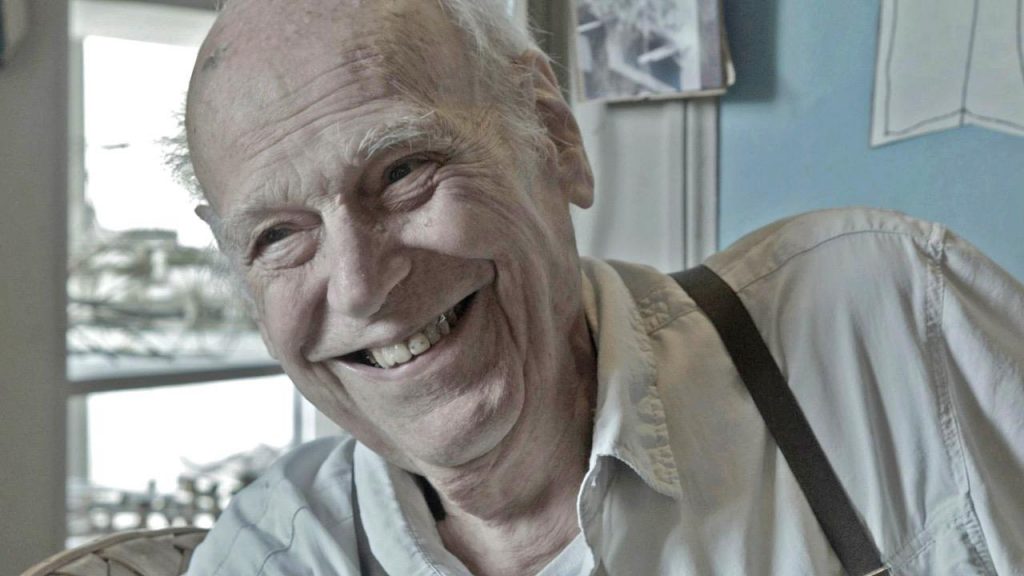
“60 Elephants. Episodes of a Theory“, AT & FR, 2018, 22 min, by Michael Klein & Sasha Pirker
Yona Friedman´s architectural and urbanistic theories are famous, starting with those of “self-planning”. While they date back to half a century ago, they seem to have become topical. Sasha Pirker and Michael Klein film in Paris, at home, but also in the streets, and while his voice supports the images, he will never appear on them himself. A fertile back and forth is set up between the urban landscapes and the provocative wisdom in the voice of this old elephant. (JPR, catalogue FID Marseille 2018)
Curated by Roland Krebs & Stefan Mayr, superwien urbanism (http://www.superwien.com);
films curated by Marlene Rutzendorfer, movies in wonderland (https://wonderland.cx/)
movies in wonderland is supported by Bundesministerium Kunst, Kultur, öffentlicher Dienst und Sport.

for more information contact us:
Roland Krebs – SUPERWIEN
Marlene Rutzendorfer – MOVIES IN WONDERLAND
